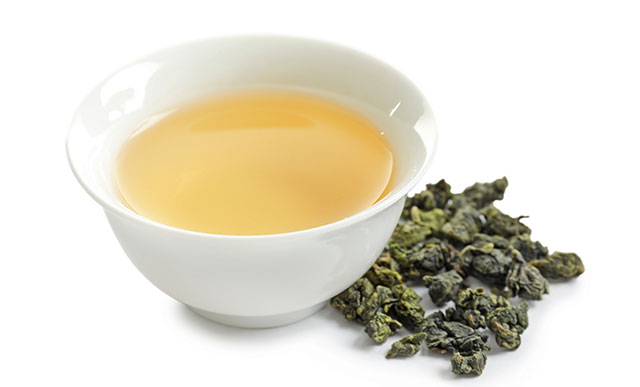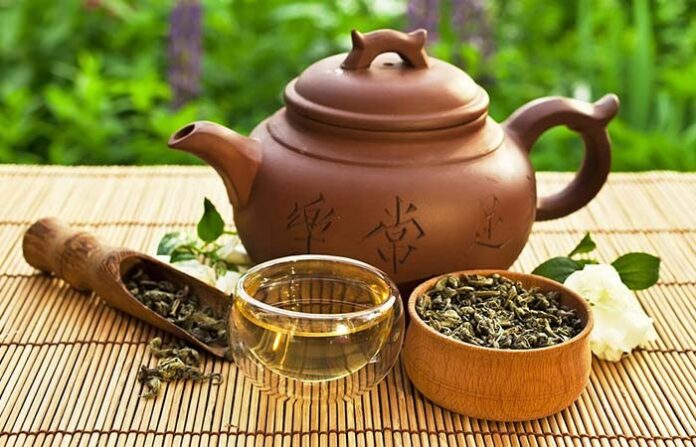Tea is said to be the healthiest drink in the world. Those who love tea shall rejoice, and those who don’t drink tea shall start drinking it. However, for tea aficionados and beginners, there are different types of tea with different benefits to each one of it. Depending on the type of tea and processing method, different teas will bring different benefits to the table. One type of tea to get acquainted with is oolong tea, for it carries benefits that is better than other tea types.
WHAT IS OOLONG TEA?

In total, there are 6 types of teas depending on its fermentation process. There is
- green (unfermented),
- yellow (slight-fermented),
- white (mild-fermented),
- oolong (semi-fermented),
- black (deep-fermented), and
- dark (post-fermented) teas.
To understand further about oolong tea, it is the widest and most versatile category of tea made from the leaves, buds and branches of camellia sinensis plant. Oolong tea falls between green and black tea, with oxidation rate anywhere between around 10 to 90%. Some oolong teas may be almost fully oxidized, making them very close to black tea, while others are green and light.
Yet the most popular oolong tea comes from China and Taiwan. Other countries like Thailand, Vietnam, Japan and India produce their own signature type of oolong tea. Each is unique with flavor, scent and leaves matching the terroir.
HEALTH BENEFITS OF OOLONG TEA
- Weight Loss
Oolong tea is most well-known as a weight-loss tea. Study showed that oolong tea might help in reducing a high fat diet-induced gain in weight, hepatic lipids, and white adipose tissue weights. Due to these features, it is helpful in preventing obesity, even without any additional effort or intensive exercise. A Chinese study on 102 over-weight and obese patients showed that 70% of patients lost 1 kg in only 6 weeks of daily oolong tea consumption. Furthermore, almost one quarter of patients, 22%, lost up to 3 kg.
2. Helping People with Diabetes
An ingredient, Polyphenols, which is available in oolong tea is helpful in inhibiting digestive enzyme α–amylase. This helps with people suffering with type 2 diabetes, for over-activity of α–amylase is responsible for high blood sugar levels.
3. Fighting Cancer
Other than that, studies showed that polyphenols in oolong tea inhibits breast cancer cells growth. A variety of oolong tea such as Chinese and cong tea acts as a for natural antioxidants and as a promising anticancer agent as it has positive effects on the human health. Not only breast cancer, drinking oolong tea regularly may help in minimizing the risk of ovarian cancer.
4. Decreasing Vascular Inflammation
Teas, in general already has a positive effect on cardiovascular heart health. Studies have shown that oolong tea may help in decreasing vascular inflammation caused by a diet high of red meat. Therefore, it reduces the risk or people suffering from cardiovascular diseases.
5. Reduces Cholesterol Levels
Oolong tea can affect your cholesterol levels. A clinical trial showed that drinking 600 ml of oolong tea per day decreases LDL or bad cholesterol by 6.69%, which may reduce the risk of developing dyslipidaemia and the risk of heart disease. Another trial conducted has proven that people who drank 1000 ml of oolong tea per day had reduced levels of both LDL and hemoglobin A1c, which is linked to the risk of developing type 2 diabetes.
6. Protects The Brain
The brain is also one of the areas in the body that is affected by drinking oolong tea. One such neurodegenerative diseases is Parkinson’s disease, where studies have shown that drinking 3 cups of tea per day for 10 years reduces the risk up to 28%. Scientists say this is because of EGCg and its high content of antioxidants which has the ability to fight free radicals.
7. Prevents Osteoporosis and Fractures
Polyphenols in oolong tea can also help out to increase bone mass and bone strength. This meant that oolong can help people with low bone mineral density, important in prevention of osteoporosis and fractures.
8. Reduces Dental Plaque and Prevents Tooth Decay
Want clean and healthy teeth? Then drink oolong tea before and after a meal. One study has shown that rinsing one’s mouth with oolong tea reduces the risk of plaques in your teeth, though it is no substitute for brushing teeth and flossing. Regardless, its effects are known to keeping your teeth clean and healthy.
9. Increases Alertness
Like other teas, oolong tea also contains caffeine. However, one Chinese research showed that oolong tea (Ti Kwan Yin) has less than half the amount of caffeine in white tea and about 26% of the pu’erhs caffeine content. Yet another study examining 37 commercially available tea samples showed that oolong can have even double the amount of caffeine of Earl Grey or Assam and Breakfast teas. Not only that, but teas with more caffeine had more L-theanine too. This amino acid gives off a calming effect. As a result, you will feel more alert due to the caffeine but calming at the same time with no jitters.
10. Reduces the Risk of Stroke
As oolong tea helps with cardiovascular diseases, it can also help with reducing the chances of stroke. Those who drink 1 cup of green or oolong tea per day were less at risk from ischemic stroke than non-regular tea drinkers, and those who drink 3 cups daily 21% lower risk than those who drink only one. This was supported by scientific data.
11. Treats Effects of Eczema
According to a clinical trial from Japan, just drinking 10 grams of oolong tea per day gave reduced their inflammation and itching in 63% of patients with eczema after only 1-2 weeks of treatment.





